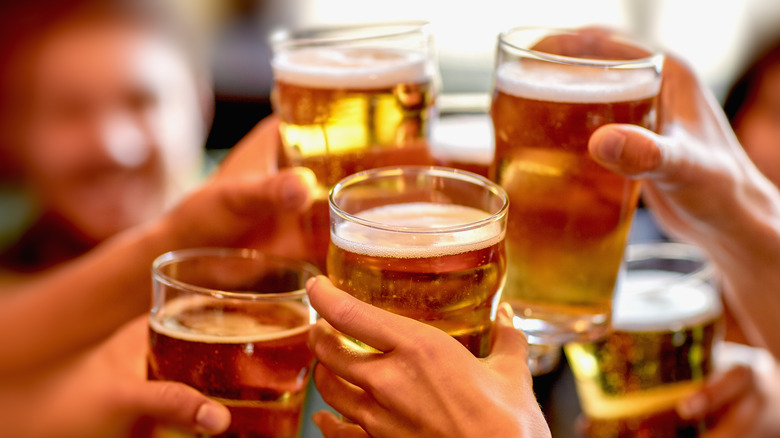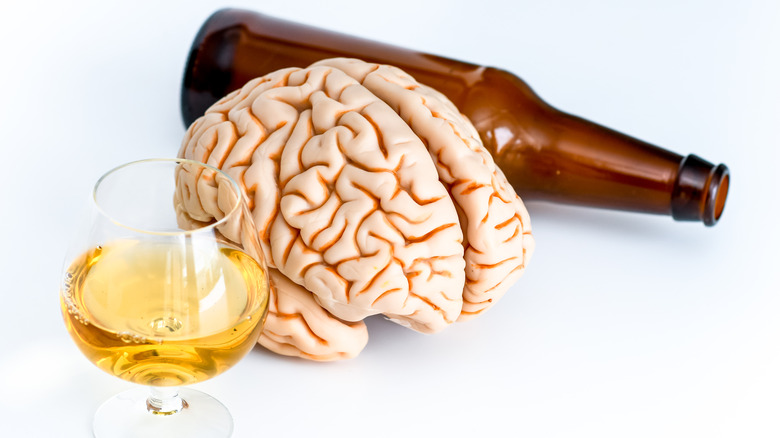The Myth About Alcohol You Need To Stop Believing
You've probably heard about the saying that alcohol kills your brain cells. It's easy to believe, especially if you're one of those people who has experienced a raging hangover after a night of fun and drinks. It can be easy to imagine your brain cells blaming you as they die. If you're one of these people, you'll be happy to know that there's no truth to this. Alcohol does not kill your brain cells. And no, this isn't simply a myth rejected by those who enjoy drinking; it's actually backed by science.
The effects of alcohol on the brain depend on different factors. There may be short-term effects or long-term effects (via Healthline.) Upon consuming an alcoholic drink, the brain is affected, but in no way do the brain cells die.
In a 1993 study, researchers conducted post-mortem examinations of drinkers and non-drinkers. According to MD Linx, the study revealed that the average number of neurons were pretty much the same across the board despite some subjects being drinkers. In conclusion, the study states that alcohol does not kill brain cells, but it can damage them.
What happens to the brain when you drink alcohol?
Instead of killing brain cells, as the myth suggests, alcohol can damage dendrites, the part of neurons responsible for transmitting signals and impulses to other neurons. Per Brain HQ, damaged dendrites can result in cognitive issues affecting concentration, memory, and coordination. These are the short-term effects when consuming alcohol, and the most common experience for social and moderate drinkers.
Heavy drinkers can have more damaging and lasting effects on their brain. According to Healthline, drinking copious amounts of alcohol can lead to the shrinking of the brain, also known as brain atrophy. Per a study in 2017, drinkers who consumed about four alcoholic drinks a day had brains that atrophied six times more than those who didn't drink.
Despite all this, there are benefits to drinking, too, including a lower risk of cardiovascular disease, improvement of libido, and lower the risk of developing gallstones, as Medical Daily outlines. In order to reap these benefits and not have lasting damage to the brain due to alcohol consumption, however, it is suggested that healthy adults stick to a maximum of two alcoholic drinks a day.

